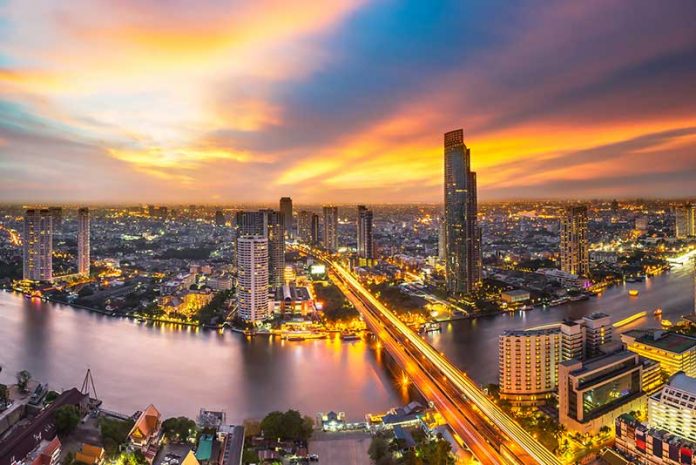According to a report released by the property consultant firm CBRE, land prices in central Bangkok have increased by about 1,000 percent in the 30 years since CBRE established an office in the Thai capital.
While this is hardly surprising, the pace of price growth appears to have accelerated since the turn of the century and this growth has been especially noticeable since 2015, in the year after the military launched a coup and ousted the civilian government.
Indeed, a quick look at prices per square wah in figures released by CBRE shows a fairly flat line between 1988 and 1992 followed by modest increases up to the advent of the 1997 Asian Financial Crisis. Yet by 1998 and into 1999 the price per square wah passed the 500,000 baht mark, showing just how quickly Thailand was bouncing back from the nadir of the economic crisis.
The price of a square wah in central Bangkok passed the magical million baht mark around 2007 and then went past two million baht in the early part of 2015. CBRE claims the average price per square wah is now around three million baht with no sign of a slowdown.
CBRE notes that the increase in land prices has not been uniform and there has been a major change in the development patterns in Bangkok as a whole. The property consultant noted that while Bangkok grew during the 1970s and 1980s it did not have a clearly defined city centre. It is only since the two key public transport developments, the opening of the BTS (Skytrain) at the end of 1999 and the underground railway (MRT) in 2004, that central Bangkok has become more defined.
CBRE states that by about 2025, Bangkok will have around 460 kilometres of mass transit lines. By comparison, the London Underground is 402 kilometres.
The popularity of the mass transit routes sees around 1.2 million users a day, and this will rise as more lines are opened. This has meant great increases in land values near to the most popular BTS and MRT lines, although the land price increases are far from uniform.
With stricter planning and building regulations land prices can vary quite markedly, even within the confines of what is now considered the Bangkok city centre. CBRE states that land prices are now a much greater proportion of total development costs than they once were and these costs have outstripped construction expenses.
Despite the hike in costs, CBRE expects central Bangkok will remain the preferred location for the higher end hotels, offices, retail centres and the like. Of course, the market will still be governed by affordability.
CBRE suggests a lot of older buildings will come under the wrecking ball since the value of the land upon which they sit is so much higher than the building itself. One prominent example of this is the Dusit Thani Hotel, where there are plans to demolish the existing structure and redevelop the site.











